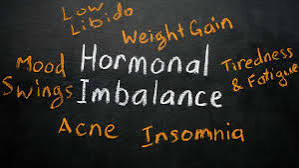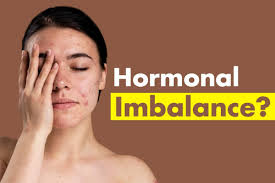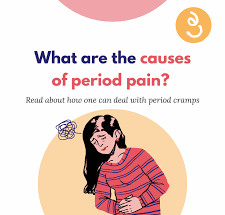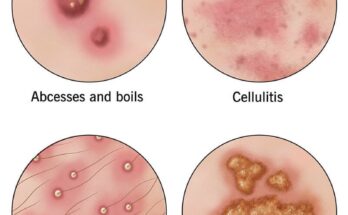Hormonal imbalances are becoming increasingly common, affecting millions of people worldwide, particularly women. These imbalances can significantly impact your physical, emotional, and mental well-being.
What Are Hormones?
Hormones are chemical messengers produced by glands in the endocrine system. They travel through the bloodstream, delivering instructions to tissues and organs to regulate various body functions, including:
- Metabolism
- Growth and development
- Reproductive health
- Mood and energy levels
Hormones play a crucial role in maintaining balance within the body. Even small changes in hormone levels can lead to noticeable effects on your health.
What Is a Hormonal Imbalance?

A hormonal imbalance occurs when there is too much or too little of a hormone in the bloodstream. Because hormones are integral to many bodily functions, even slight disruptions can lead to health issues.
Hormonal imbalances can result from various factors, such as stress, lifestyle habits, medical conditions, or natural life changes like menopause.
Conditions Caused by Hormonal Imbalances
Hormonal imbalances can lead to several health conditions, including:
- Polycystic Ovary Syndrome (PCOS): A hormonal disorder that affects women of reproductive age.
- Thyroid Disorders: Such as hypothyroidism (low thyroid function) and hyperthyroidism (overactive thyroid).
- Diabetes: Caused by imbalances in insulin, a key hormone for regulating blood sugar.
- Infertility: Often linked to hormonal issues affecting ovulation and reproductive health.
- Adrenal Disorders: Like Addison’s disease or Cushing syndrome, which disrupt cortisol levels.
Symptoms and Causes of Hormonal Imbalances
Symptoms
Hormonal imbalances can present a wide range of symptoms, such as:
- Irregular menstrual cycles
- Unexplained weight gain or loss
- Fatigue
- Mood swings, anxiety, or depression
- Hair thinning or excessive hair growth
- Acne or skin issues
- Decreased libido
Causes
Several factors can lead to hormonal imbalances:
- Stress: Chronic stress impacts cortisol levels, disrupting overall hormonal balance.
- Diet and Lifestyle: Poor nutrition, lack of exercise, and exposure to toxins can affect hormone production.
- Medical Conditions: PCOS, thyroid disorders, and diabetes are common causes.
- Aging: Natural life stages like puberty, pregnancy, and menopause alter hormone levels.
Hormone Imbalance Symptoms That Affect Your Metabolism
Hormones like insulin, cortisol, and thyroid hormones directly impact your metabolism. Imbalances in these hormones can lead to:
- Slower metabolism, causing weight gain.
- Difficulty losing weight despite diet and exercise.
- Increased fat storage around the abdomen.
- Fatigue and low energy levels.
Can Hormonal Imbalance Cause Weight Gain?
Yes, hormonal imbalances can cause weight gain. For instance:
- Cortisol: High levels of cortisol (the stress hormone) can trigger fat storage, especially around the midsection.
- Insulin: Insulin resistance can lead to diabetes and weight gain.
- Thyroid Hormones: Hypothyroidism slows metabolism, making it easier to gain weight.
Can Hormonal Imbalance Cause Anxiety?
Yes, hormonal imbalances can significantly impact mental health, leading to anxiety. For example:
- Estrogen and Progesterone: Fluctuations in these hormones, particularly during menopause or menstrual cycles, can cause anxiety.
- Cortisol: Chronic stress and elevated cortisol levels contribute to feelings of worry and unease.
- Thyroid Imbalances: Both hyperthyroidism and hypothyroidism can lead to anxiety or depression.
How Are Hormonal Imbalances Diagnosed?
Hormonal imbalances are diagnosed through a combination of:
- Medical History and Physical Exam: Your doctor will review your symptoms and lifestyle habits.
- Blood Tests: To measure hormone levels like estrogen, progesterone, testosterone, and thyroid hormones.
- Imaging Tests: Ultrasounds or MRIs to check for glandular abnormalities.
- Specialized Tests: Such as saliva or urine tests for more precise hormone analysis.
How Can I Prevent a Hormonal Imbalance?
While some causes of hormonal imbalances, such as aging, are unavoidable, you can take steps to reduce your risk:
- Maintain a Healthy Diet: Focus on whole foods, healthy fats, and lean protein.
- Exercise Regularly: Physical activity helps regulate hormones like insulin and cortisol.
- Manage Stress: Practice relaxation techniques like meditation or yoga.
- Limit Exposure to Toxins: Avoid plastics and chemicals that mimic hormones.
- Get Enough Sleep: Rest is essential for hormonal regulation.
How Are Hormonal Imbalances Treated?
Treatment depends on the underlying cause and may include:
- Lifestyle Changes: Improving diet, exercise, and stress management.
- Medications: Hormone replacement therapy, thyroid medications, or insulin.
- Natural Supplements: Herbs like ashwagandha or evening primrose oil can support hormone balance.
Stem Cell Therapy for Hormonal Imbalance
Stem cell therapy is a cutting-edge approach that targets hormonal imbalances by regenerating and repairing damaged cells in hormone-producing glands.
How It Works
- Cellular Regeneration: Stem cells restore the function of glands like the thyroid, ovaries, or pancreas.
- Hormone Regulation: By improving gland health, stem cells help balance hormone levels naturally.
- Reduces Inflammation: Chronic inflammation can disrupt hormone production, which stem cells help address.
Stem cell therapy offers a promising, natural solution for long-term hormonal balance.
Stem Cell Product for Hormonal Imbalance

Spidex20 is a revolutionary, plant-based stem cell product formulated to address hormonal imbalances in women. By working at the cellular level, it helps restore balance, improve glandular function, and combat the effects of hormonal disruptions naturally and effectively.
Key Benefits
- Regulates Hormones: Spidex20 helps balance estrogen and progesterone levels, addressing issues like irregular periods and menopause symptoms.
- Boosts Fertility: By improving reproductive hormone health, it supports ovulation and overall fertility.
- Relieves PMS and Menopause Symptoms: Reduces mood swings, hot flashes, and other discomforts.
- Improves Skin and Hair Health: Balances hormones that contribute to acne and hair thinning.
- Increases Energy Levels: By supporting metabolic health, Spidex20 combats fatigue caused by hormonal imbalances.
Why Choose Spidex20?
Spidex20 uses advanced stem cell technology to restore hormonal balance naturally and effectively. It works at the cellular level, making it a holistic and long-lasting solution for women’s hormonal health.
Conclusion
Hormonal imbalances can affect every aspect of your life, but with proper diagnosis, prevention, and treatment, you can restore balance and live a healthier, happier life. Whether through lifestyle changes, traditional treatments, or innovative solutions like stem cell therapy and Spidex20, you have options to reclaim your well-being.
Are you experiencing symptoms of hormonal imbalance? Start your journey to recovery with Spidex20, and experience the transformative power of hormonal health.



